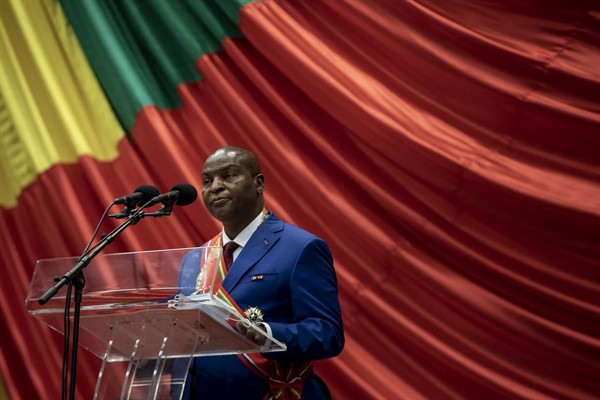Once considered a marginal country in regional affairs, the Central African Republic has become a frequent topic of discussion in African security circles. The CAR is frequently cited as the jumping-off point on the continent for the Russian private military contractor the Wagner Group and the touchstone for the group’s involvement in other African countries. But with the group’s activities having now expanded to Mali, Sudan and Libya, the fixation on its flashy entrances into the region’s conflict zones has diverted international attention from a far more alarming development in Bangui: CAR’s increasingly precarious future.
For a brief moment in 2016, CAR seemed on the road to recovery from its sudden descent into conflict in 2012 and 2013, when the Seleka rebel coalition drove former President Francois Bozize from power but subsequently failed to bring an end to violence. The United Nations launched a peacekeeping mission in 2014, known by its acronym MINUSCA, to stabilize the country’s security, and the European Union and France subsequently sent training missions to help rebuild CAR’s armed forces, known by their French acronym FACA.
Though progress on reestablishing security was halting, Central Africans and their international partners nevertheless set about restoring the country’s democratic institutions. Mostly successful presidential and parliamentary elections in 2015 and 2016 generated a wave of optimism. Despite delays and some irregularities, fears of electoral violence did not materialize, and President Faustin Touadera became CAR’s first democratically elected head of state in decades.

